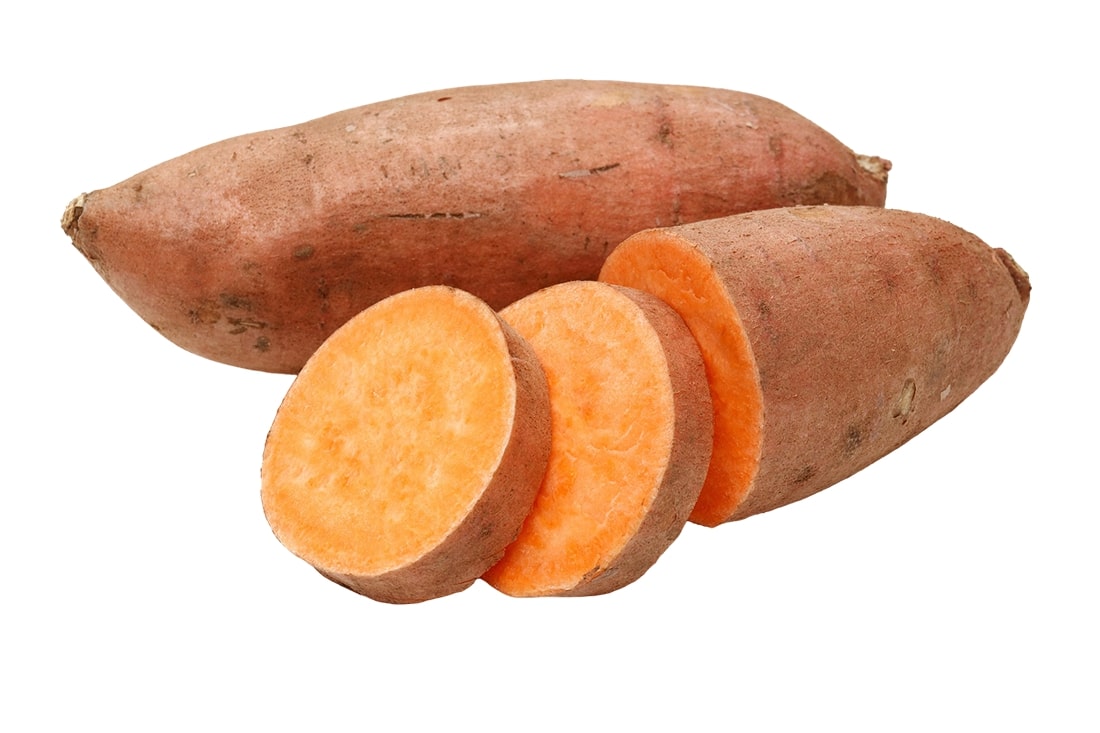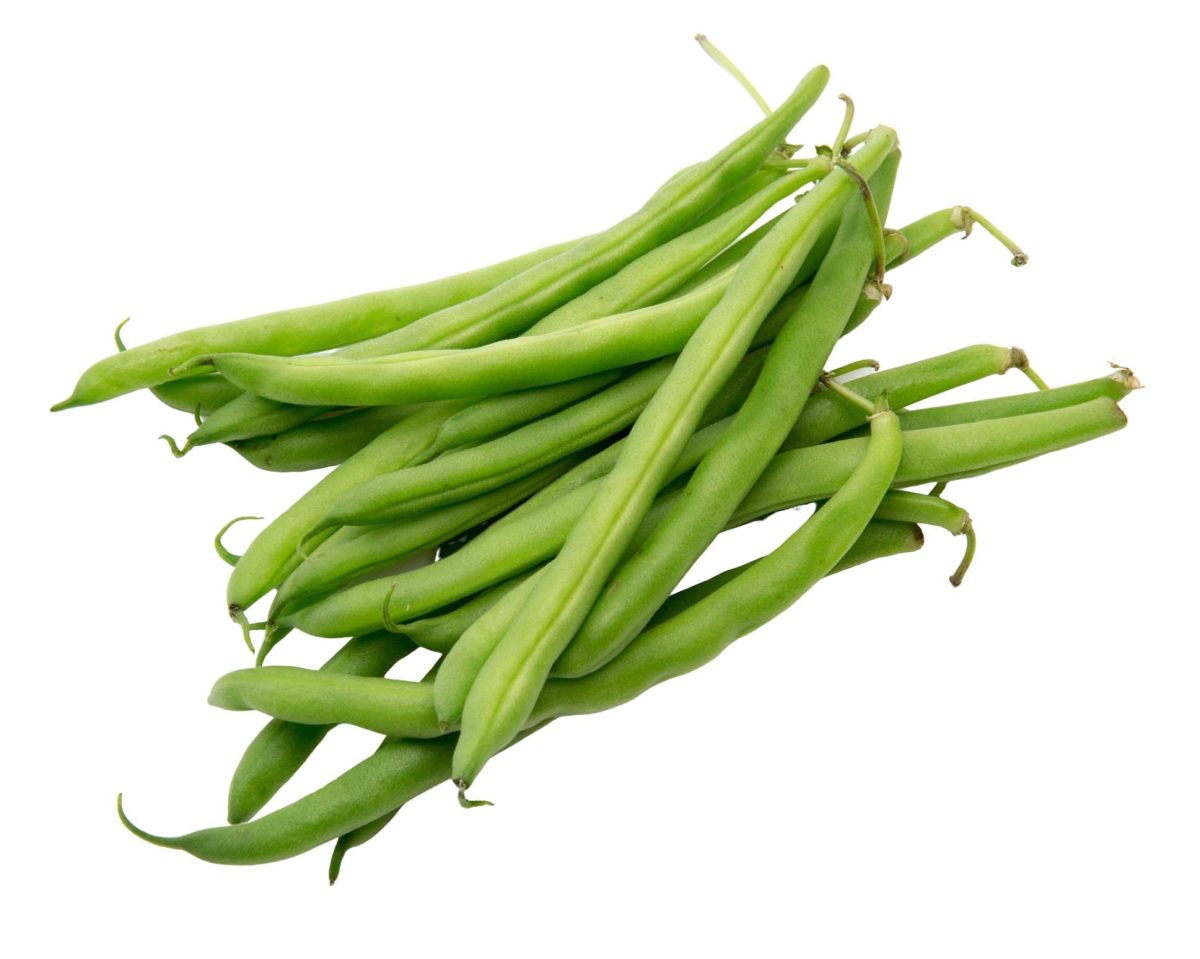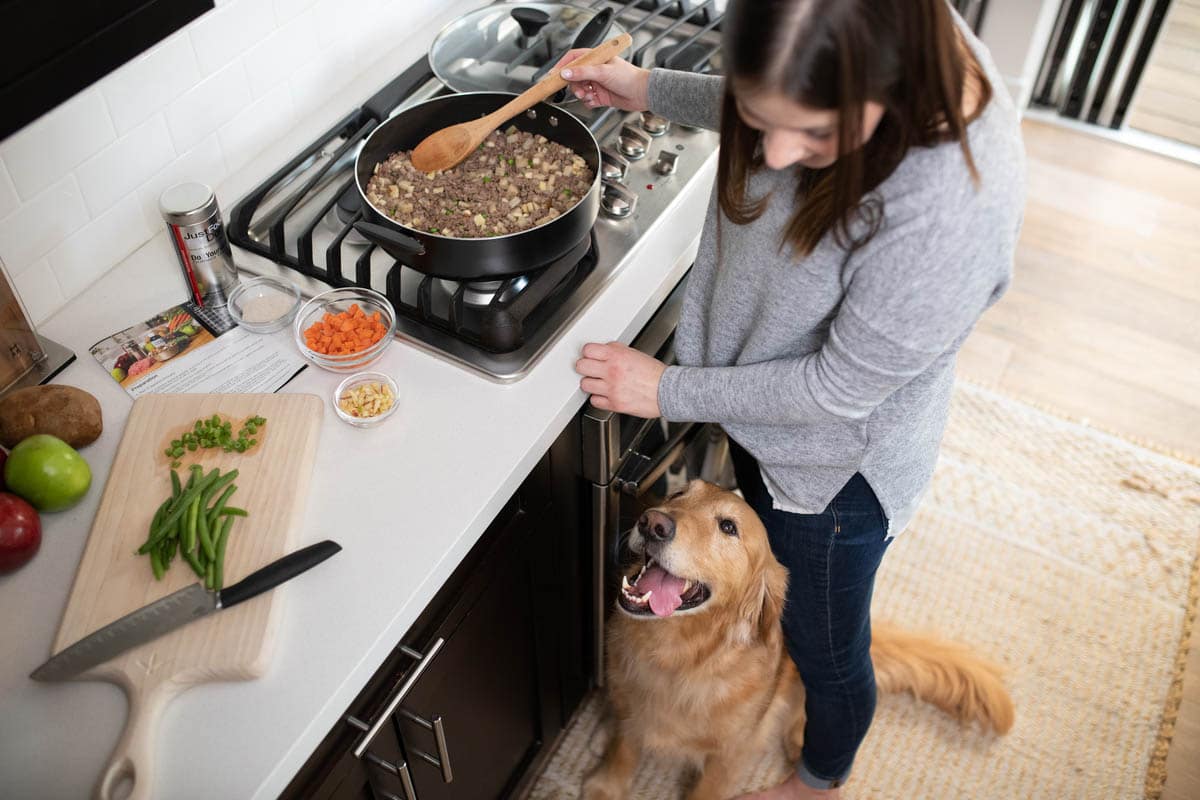Can Dogs Eat Sweet Potatoes?
Sweet potatoes are packed with health benefits for dogs and humans alike, with tons of essential vitamins and nutrients necessary for a well-rounded diet.
A balanced diet is crucial to your dog’s overall health and wellness, and adding foods with high nutritional value is a great way to make sure they’re getting what they need. Sweet potatoes are seriously tasty tubers that have great benefits for your dog!
Are Sweet Potatoes Good For Dogs?
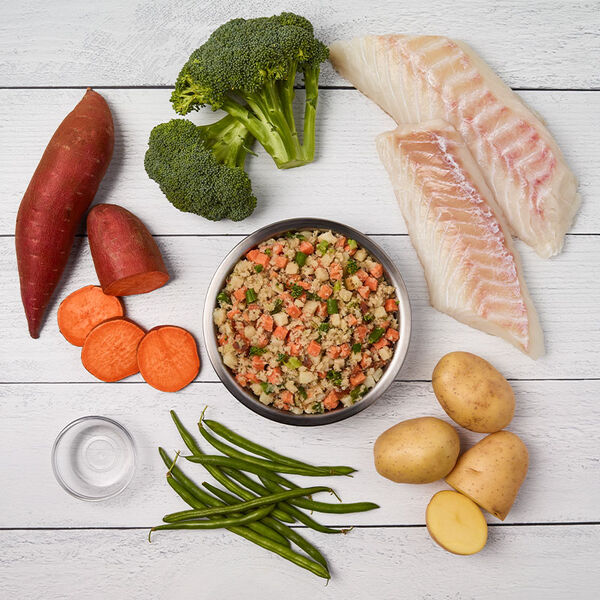
While there are plenty of human foods that are safe for dogs, sweet potatoes are actually one that’s good for dogs! These root veggies are filled with fiber and nutrients essential for a healthy dog’s diet.
Plain, cooked sweet potatoes aren’t just healthy for dogs, they also have a ton of health benefits pet parents should know about.
The Health Benefits of Sweet Potatoes
Sweet potatoes* are one of the best veggies you can give your pooch to promote pet health. They’re full of health benefits for dogs and humans alike, with tons of essential vitamins and nutrients necessary for a well-rounded diet, supporting a strong immune system, and good overall health, including:
Potassium
Did you know that just one sweet potato contains about 700 mg of potassium? Potassium is an electrolyte that your dog needs for heart, nerve, and muscle support. Low levels of potassium in dogs can cause fatigue and low appetites.
Vitamins
Sweet potatoes are full of vitamins and minerals! Vitamin A supports your dog’s immune system while Vitamin B6 supports hormone regulation, nervous system functioning, and a healthy coat.
Antioxidants
Jam-packed with antioxidants like Vitamin C and manganese, sweet potatoes are a great way to source these essential nutrients for your dog.
Vitamin C can help support a healthy inflammatory response and slow cognitive aging, while manganese is important for dogs to grow healthy bones and joint cartilage. Both of these antioxidants protect the cells in your dog’s body from free radicals — molecules that can cause illness or infections.
Beta-Carotene
Another antioxidant dogs need in their diets, beta-carotene can be found in sweet potatoes too. It’s important for healthy skin, fur, and eyes.
Calcium
Sweet potatoes also contain calcium, necessary for dogs to grow strong bones and teeth, support heart function, and maintain a healthy nervous system. Signs of low calcium levels in dogs might be weakness or loss of appetite.
Healthy Carbohydrates
Every dog diet needs healthy carbs, and sweet potatoes are a great source of them! Carbohydrates are a form of dietary fiber that provides energy for dogs and supports digestive function.
Dog owners who have furry friends with high blood sugar or who struggle with obesity should be careful when adding extra carbs to their diet, but pups can still enjoy the benefits of sweet potatoes in moderation.
Fiber
A diet with plenty of fiber is important for dogs with constipation to maintain digestive and gastrointestinal health. Sweet potatoes are a great source of fiber that dogs need. Baked sweet potatoes contain more than twice the fiber of regular white potatoes while also being a lot less starchy.
Can Dogs Eat Raw Sweet Potatoes?
Raw sweet potatoes aren’t good to share with your dog. They’re difficult to chew which can be a choking hazard to some dogs. Leaving them raw can be difficult on a dog’s digestive system. In rare cases, they can even cause intestinal blockages. Not something you want your furry friend to deal with!
Can My Dog Eat Sweet Potato Fries or Casserole?
Dogs can eat sweet potato fries in small amounts. Since they’re typically ‘fried’ in oil and may contain other seasonings that aren’t healthy for dogs, serving sweet potato fries to your dog isn’t the best way to reap the benefits.
While it may be tempting to share sweet potato casserole with the traditional marshmallow topping, stick with baking or boiling plain sweet potatoes to share with your furry friend.
3 Ways To Add Sweet Potatoes to Your Dog’s Diet
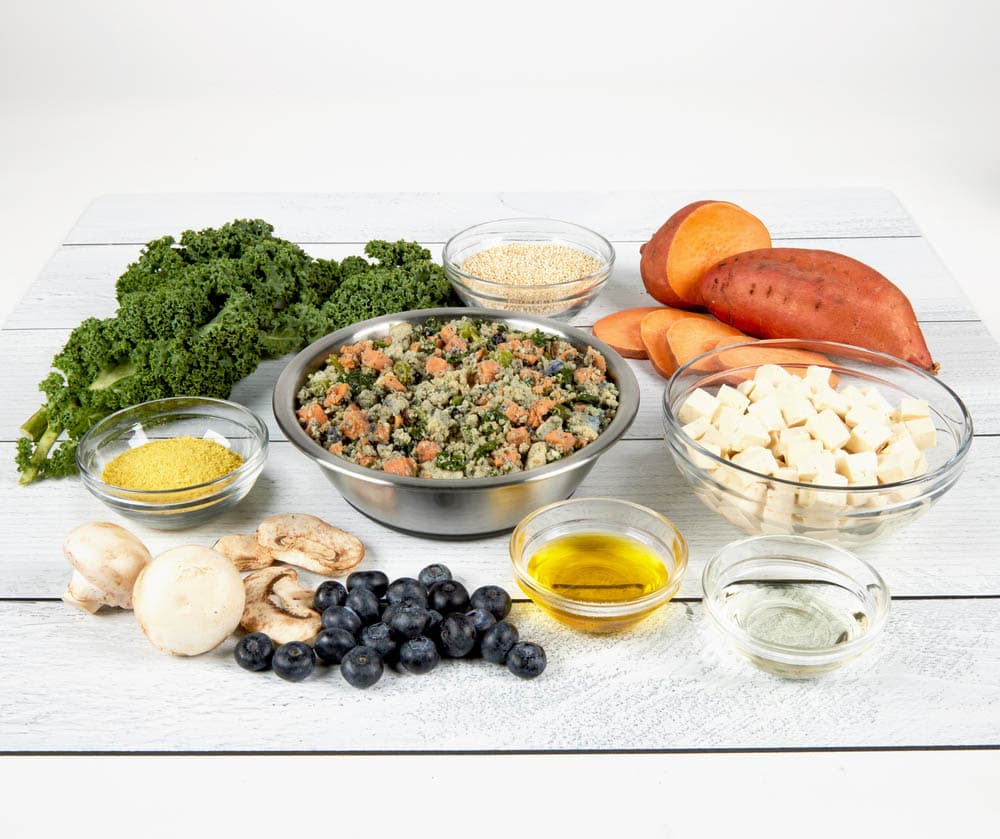
The benefits of sweet potatoes for your furry friend are undeniable, so how can you add more of this superfood to your dog’s diet? Here are a few ways to incorporate yummy yams into your pet’s food.
Look For Dog Food Made With Sweet Potatoes
Companies that make fresh dog food with real food and healthy ingredients are a great source for all your dog’s dietary needs. Many JFFD meals and recipes include sweet potatoes and other whole foods and are made to support your dog in living their best (and longest) life.
Give Them Sweet Potato Dog Treats
Sweet potato-based dog treats are a great way to reward your dog and add a little something healthy to their diet. You can even make your own sweet potato dog treats at home!
Add Sweet Potato Pieces to Their Food
Plenty of pet parents can relate to having to make their dog’s food more enticing now and then. What better way to mix up their regular dry food or kibble routine than with a healthy, fiber-filled sweet potato?
Bake or boil a couple of yams and dice them up to go into your pup’s food. They’ll enjoy a little something special while you can feel good about giving them food that’s good for them.
How Much Is Too Much Sweet Potato For Dogs?
Just like with any food generally intended for humans, be sure to feed sweet potatoes to your dog in balanced moderation. As with most foods, large-breed dogs can handle a bigger dose in their diets while smaller dogs should start with more modest amounts.
Most dogs shouldn’t eat sweet potatoes every day since the carbohydrates can throw off their glycemic index and cause pancreatitis. Dog owners who have a pup with diabetes should check with their vet before feeding their dog sweet potatoes.
If sweet potatoes are a new food for your dog, start by giving them small amounts to make sure their systems don’t get overwhelmed or in case of a rare reaction.
This content is for informational use only and does not replace professional nutrition and/or medical advice, diagnosis, or treatment. It is not a substitute for and should not be relied upon for specific nutrition and/or medical recommendations. Please talk with your veterinarian about any questions or concerns.
*When cooked, the skins have nutritional value, but if your pup has a sensitive tummy, it’s best to peel them off.
